
2014 Tim Groseclose
All Rights Reserved.
No part of this publication may be reproduced, stored in a retrieval system, or transmitted, in any form or by any means, electronic, mechanical, photocopying, recording, or otherwise, without the written permission of the author.
First published by Dog Ear Publishing
4010 W. 86th Street, Ste H
Indianapolis, IN 46268
www.dogearpublishing.net

ISBN: 978-1-4575-2829-3
This book is printed on acid-free paper.
Printed in the United States of America
Whats extraordinary about this is that you have an organization [college admissions offices] every member of which is well aware of its main purpose illegal racial discrimination but in which no one will say so out loud. A willingness to lie and break the law are job requirements.
-Michael Barone
Often the best source of information about waste, fraud, and abuse in the government is an existing government employee committed to public integrity and willing to speak out. Such acts of courage and patriotism, which can sometimes save lives and often save taxpayer dollars, should be encouraged rather than stifled.
-Barack Obama
Truth will ultimately prevail where there is pains taken to bring it to light.
-George Washington
Table of Contents
Foreword
by Larry Elder
O n one level this book addresses a narrow issueits an expose of how UCLA broke the law in its admissions practices. But on another level it addresses a much broader and more significant issuea culture of corruption and dishonesty within American universities.
On my radio program Im often critical of university professors. In fact, when I discuss academia, I sometimes feel like the ancient Greek figure Diogenes, a man who wondered the Earth with a lantern searching for just one honest person.
Well, Ive written this foreword because I believe Ive finally found an honest person in academia. His name is Tim Groseclose.
Grosecloses story begins when, as a member of a faculty oversight committee for UCLA admissions, he asked for a random set of application files. He suspected that, in violation of Proposition 209, UCLA was granting racial preferences in its admissions decisions. When UCLA refused to give him the files, he grew even more suspicious. In response, he resigned from the committee and alerted the press.
To divert attention away from his resignation, UCLA formed the equivalent of a blue-ribbon commission. Specifically, it hired a sociology professor, whom it called an independent researcher, to study UCLA admissions and to examine Grosecloses allegations about racial preferences.
Although the study was supposed to be completed in a year, four years later UCLA finally released it. The statistical tests that the researcher conducted showed significant evidence of racial preferences. However, UCLA wrote a press release claiming the opposite.
In this book Groseclose documents the overwhelming evidence that UCLA broke the law. It includes an explanation of the main points of the report by the sociology professor. It also includes an analysis of a data set that Groseclose and his colleague obtained through Californias Public Records Act. That data set contains evidence that is even more damning to UCLA.
But more interesting was the suspicious way that UCLA faculty and senior officials reacted when Groseclose asked for the data. They seemed to know that UCLA was breaking the law, and they resorted to desperate measures to prevent Groseclose and others from seeing the proof. Once Groseclose began to press them, their responses became more and more fanciful. For instance, they claimed that privacy was the reason they couldnt give him the data. But then Groseclose suggested that they redact all names and personal identifiers from the applications. They still refused. Further, if they were so concerned with privacy, why did they give the data to the independent researcher? They never gave a plausible answer.
In this book Groseclose shines a light on UCLAs admissions practices. When he does, it reveals much corruption and dishonesty. But as Groseclose suggests, and as I agree, if the light had been shone on another university or any other aspect of university life, then wed probably see just as much dishonesty and corruption.
As I have argued for years, universities are plagued by a monolithic leftwing culture. Although there are a few conservatives within academia, their numbers are so small and they are so worried about retaliation for speaking up, that we never hear from them. As a result, universities appear as if they have zero conservatives.
Meanwhile, leftwing professors have strong desires to implement their ideological goals. Often their desires are so strong that they are willing to lie or break the law to implement the goals. To them, the lies are noble lies, and the law-breaking is civil disobedience. But as Groseclose discusses, sometimesin order to cover up the original noble liethe professors have to tell more noble lies. When the lies become a habit, the result is a culture of corruption and dishonesty.
This book is a case study of that culture.
The book is analogous toand I do not think Im exaggerating when I say thisWhitaker Chambers Witness. Chambers was a communist who, during most of the 1930s, worked in a secret cell that had infiltrated high levels of the U.S. government. After he abandoned communism, he revealed how he and his colleagues worked as Soviet spies.
The information that he passed on to the Soviet government, however, really wasnt that significant. Lots of it was unclassified, and some of it involved things as mundane as Navy life rafts and fire extinguishers. More important was Chambers insights about how a Communist thinks.
In a similar fashion, while Grosecloses revelations about UCLA admissions are interesting, the main contribution of the book, I believe, is the insight he provides into the mind of the American professoriate.
My favorite parts of the book, believe it or not, are the conversations Groseclose reports from faculty meetings. For instance, Groseclose discusses one meeting in which the UCLA chancellor pressures the committee into adopting a holistic admissions system. Groseclose discusses another meeting in which two leftwing professors insist that the independent study should not examine data from a particular year because in that year, they admit, UCLA was probably the most guilty of violating the law.
According to folklore, Henry Kissinger once said, Academic politics are so vicious precisely because the stakes are so low.transcripts of faculty meetings, I would have replied, I think Id rather watch paint dry.
However, the conversations are fascinating, and I learned much from them. But they are also troubling. They give special insightperhaps more than any other book I have readabout how leftwing professors and university administrators think. If those conversations are representativeand I believe they arethen they reveal some major problems that our country faces.
Once this book becomes widely read, Im certain that Groseclose will face the usual litany of name-calling by leftwing critics, including the charge that he is a hothead motivated by personal animus. However, I know Groseclose personally; he is nothing of a hothead. He is gentle, modest, and introverted. Further, although he has strong convictions, he is averse to confrontation and doesnt enjoy arguing. In short, hed make an awful talk-radio host.
Next page

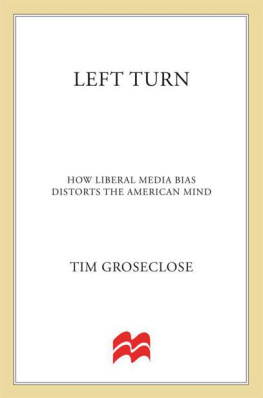
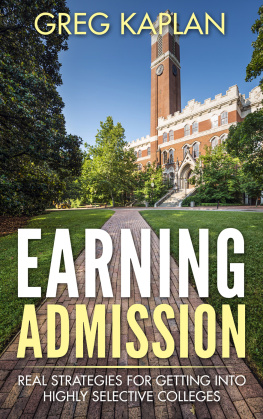
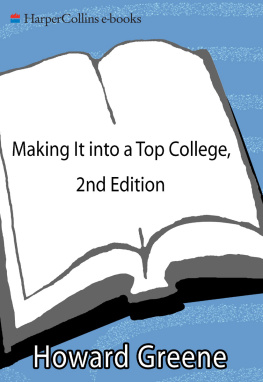
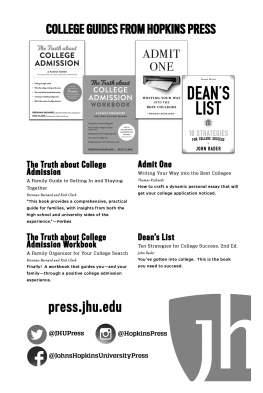
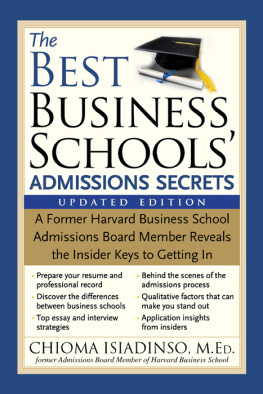
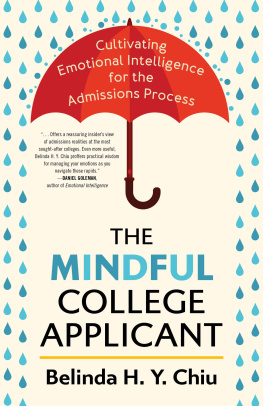
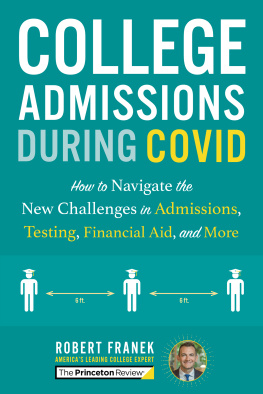
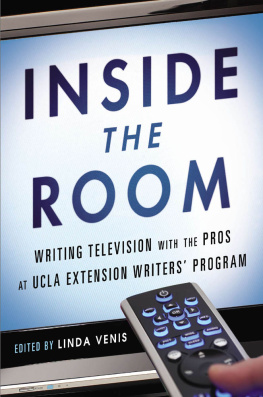
![Reding - Grads Guide to Graduate Admissions Essays] : Examples from Real Students Who Got into Top Schools](/uploads/posts/book/101661/thumbs/reding-grad-s-guide-to-graduate-admissions.jpg)

